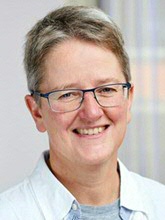Extreem geweld voorkomen door inzicht in de daders: Conclusies van 30 jaar onderzoek naar daders van internationale misdrijven en terrorisme

De jodenvervolging in Nazi Duitsland, de oorlogen in voormalig Joegoslavië, Syrië, Irak, Oekraïne, Israël en Palestina, terreuraanslagen, seksueel geweld: allemaal doen ze de vraag rijzen wie er tot zoiets in staat is. Wat voor mensen zitten er achter deze gruweldaden en wat beweegt hen? Alette Smeulers, hoogleraar internationale misdrijven aan de Rijksuniversiteit Groningen, verricht onderzoek naar daders van extreme vormen van massaal en politiek geweld. Haar conclusie: 'De grootste fout die we kunnen maken, is denken dat een dader totaal anders is dan wijzelf.'
'Uit onderzoek blijkt dat we potentieel allemaal tot gruwelijkheden in staat zijn. Als de omstandigheden ernaar zijn, kunnen we dader worden. Niet omdat we duivels zijn, maar omdat we zwak zijn', aldus Smeulers. 'Het is een proces, waarin we met de stroom meegaan. We durven geen ''nee'' te zeggen, want we willen niet buiten de groep vallen. We praten het goed door te zeggen dat we niet anders konden, of dat wij goed zijn en tegen het kwaad vechten. Het is een psychische fuik waarin we verstrikt raken.'
Smeulers verricht al ruim 30 jaar onderzoek naar daders van internationale misdrijven en terrorisme. Onlangs bracht ze het boek Perpetrators of Mass Atrocities – Terribly and Terrifyingly Normal? uit. In elk hoofdstuk wordt een bepaald type dader besproken. Aan bod komen onder anderen Vladimir Poetin, Osama bin Laden en Anders Breivik. Veel verhalen zoals die van de beruchte Nazi-arts Josef Mengele laten zien hoe zelfs tot dan toe gezagsgetrouwe burgers betrokken kunnen raken bij de meest gruwelijke misdrijven. Het boek toont echter ook aan dat daders heel verschillend zijn: sommige zijn vatbaar voor geweld, terwijl anderen vooral gedreven worden door gehoorzaamheid, ideologie, materieel gewin of eigenbelang.
Vrijwel alle daders zijn geschokt als ze voor het eerst een gruweldaad plegen. Ze zetten zich echter over hun afschuw heen en heffen hun tegenstrijdige gevoelens op door hun daden te rechtvaardigen. 'Veruit de meeste gruweldaden in de wereld zijn begaan door mensen die dachten dat zij degenen waren die goed waren, die het goede deden', aldus Smeulers. 'Zelfs mensen die de meest gruwelijke gewelddadigheden hebben gepleegd, blijven zichzelf zien als degenen die deugen. Zij definiëren zichzelf als de goeden, de rechtvaardigen en hun vijanden als de kwaden, de slechteriken, de barbaren. En in de strijd van goed tegen kwaad zijn alle middelen geoorloofd.'
Smeulers vindt de gedachte dat De meeste mensen deugen, zoals de titel van Rutger Bregmans bestseller veronderstelt, dan ook problematisch. 'Waar we naartoe moeten, is het besef dat we zowel tot goed als tot kwaad in staat zijn. We moeten ons er voortdurend van bewust zijn dat, ook als we de beste bedoelingen en een legitiem belang hebben, dit geen vrijbrief is en dat we tot extreem kwaad in staat zijn. Daarom moeten we ons continu afvragen of de keuzes die we maken wel de juiste zijn, en nooit en te nimmer als vanzelfsprekend aannemen 'dat dat wel zo zal zijn omdat wij immers deugen'. Juist de onvoorwaardelijke overtuiging dat je zelf deugt, maakt je blind voor je eigen potentieel tot het kwaad.'
Meer informatie
a.l.smeulers rug.nl
06-31982626
Dit bericht is geplaatst door de Faculteit Rechtsgeleerdheid.
Meer nieuws
-
08 december 2025
Kleurrijke Kopstukken: Bert Röling
